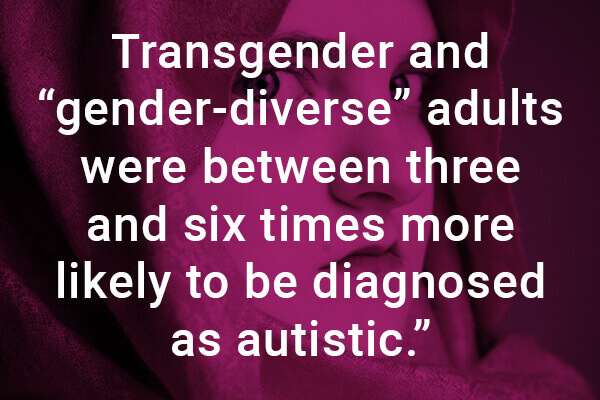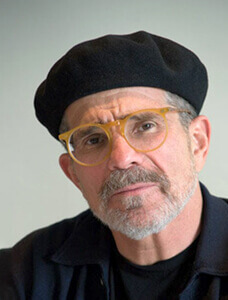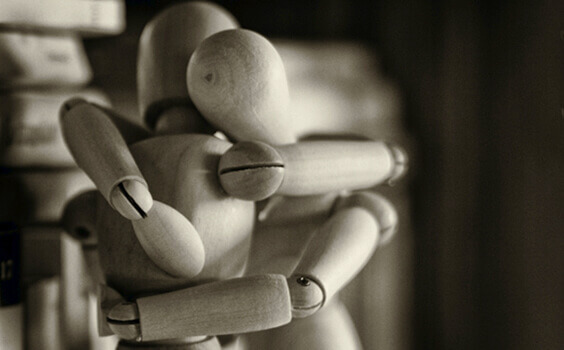Clinging to truth and beauty
- “Now may the God of peace himself sanctify you completely, and may your whole spirit and soul and body be kept blameless at the coming of our Lord Jesus Christ.” (1 Thessalonians 5:23)
In 2013, the American Psychiatric Association (APA) published the fifth edition of the Diagnostic and Statistical Manual of Mental Disorders (DSM5) Included among the disorders found in the DSM5 is the autistic spectrum disorder (ASD). This encompasses autism, in varying degrees of severity, and Aspergers—a diagnosis reserved for those patients with much greater communication skills and cognitive abilities.
“Most children who were previously diagnosed with Asperger’s have good language skills but may have difficulty “fitting in” with their peers. They might feel uncomfortable or awkward, but their language skills were present.” (From Therapeutic Pathways, February 25, 2021)
Last week, I shared a startling analysis by Andrew Klavan—who it should be noted, does not make any claim to be a medical doctor or psychologist regarding autism—and specifically his observation of Yuval Jonah Harari, a very bright, if not brilliant thinker and the author of “Sapiens: A Brief History of Humankind,” as being autistic. The book has generated more than a little controversy, and so has Harari. In “Rebel With Your Life,” Klavan had this to say, “a woman is made to carry and nurture human life. If she can’t do that she’s still a woman—she’s still a person. She still may be a wonderful great important person or even just a lovable person, [but] she’s handicapped. [This is] true with autistic people. They can be lovely people but they shouldn’t be dictating morality from the top down because they have a handicap, and the handicap is that autistic people cannot easily perceive or recognize the inner lives of other individuals.”
Klavan continues, “They’re great at something called systemizing which is arranging ideas, both good and bad, into systems.
This is the greatest threat of our generation today. We are willing victims of systemizing by the new forces of our ruling elite.
Jonathan Haidt wrote about this in his book ‘The Righteous Mind: Why Good People are Divided by Politics and Religion.’ Haidt says, ‘Systemizing is a strength. Problems arise when systemizing occurs in the absence of empathizing or connecting with the inner lives of other people.’ When you combine big systems, but an inability to connect with the emotional lives of others you get the beginning of an inhuman Society.” Klaus Schwab—the titular head of the World Economic Forum, and a big fan of Harari—is really big into systemizing. He calls his system “The Great Reset.”
Watch and listen to Harari, as he makes this stunning admission: “If you have enough data on a person, and you have enough computing power, you can hack that person. You can understand them better than they understand themselves. You can know their political views, their sexual preferences—their personality even better than they can, and then you can completely manipulate them and this is something that you can understand them better than they understand themselves.”
May God have mercy.
The creation of a new society, like The Great Reset, or for that matter, The Great Society, is really nothing new. But it never succeeds. It always fails. And when it does, it leaves incalculable pain and suffering. The twentieth century is a perfect example. How will it be different in the twenty-first century? These seemingly incongruous psychological perturbations might be the warning, if we would only make the connection.
Today, our nation’s social constructs contain narratives we really haven’t had to deal with before: woke ideological militancy, gender reversal ideation, the cudgel of hyper racism… and we’re just getting started. These notions are so outrageous that altogether too few of us can even understand what’s happening. This is why people who are disordered with autism have become among the most abused of our population, and now it seems, they are becoming another weapon in the arsenal of social re-engineering.

According to “The Conversation,” there is “some evidence to suggest that transgender and gender-diverse people are more likely to be autistic than cisgender people. But the evidence has largely come from small studies, typically conducted using people who are referred to gender-identity clinics.”
Writing for Cross River Therapy, Steven Zauderer shares these statistics, “According to the CDC, around 1% of the world’s population fall into the autism spectrum disorder—over 75,000,000 people. In 2022, 1 in every 100 children are diagnosed within ASD. About 1 in 44 children has been identified on the ASD in the United States according to the CDC. Autism prevalence has increased 178% since 2000!
Society is encouraged to abandon criticism, and accept poor health habits—like obesity for example—but even more, we are manipulated into promotion and celebration without interposing in any way, lest we suffer retribution. The distinction between healthy male and female role models, for example, and other traditional ideals are disappearing. We are now living in the new Pandemonium, and the architects of this “Miltonian” city [referring to Paradise Lost] are among the “disordered” who warrant our intervention—but instead, we are demanded to offer our empty adoration.

David Mamet, (pictured) writing in the National Review, (August 29, 2022) “The tragedy of autism differs from that of birth defects in this: The birth defect is a fait accompli and, however prolonged, the progress of the stages of grief, ends in acceptance.”
“But as autism holds out the promise of hope, its acceptance may be understood by the parents as treason to their child. And, so, the grieving process never ends. It is stimulated by hope, dampened by anger, tinted by depression, and so on, interminably.”
“An understanding of this process might lead them to the best possible outcome of their otherwise irresolvable tragedy: to hold each other, weeping.”
Sometimes I can’t help but wonder, if the world’s cultural extremes, like Mamet’s embattled parents, would just meet in the “middle of the road”—neutral territory, and hold each other, and, weeping, and realize the “child” is worth their sacrifice of self, the madness would then be overwhelmed by the grace of genuine humanity.
But the reality is this: one side, it seems, is incapable of experiencing, much less understanding, the sanctifying emotion of weeping with the one other over the loss of truth and beauty. The inner life is our soul and spirit—gifts of our creator God. In Pandemonium the inner life is bound in chains, and the weeping is from anguish.
- “Hear my prayer, O Lord, and give ear to my cry; Do not be silent at my tears; For I am a stranger with You, A sojourner like all my fathers.” (Psalm 39:12)
We cannot weep for long, because our children depend on our keeping them from going to Pandemonium. We must not allow them to be taken there.
[In the interest of full disclosure, Harari’s autism—medically diagnosed or not—grabbed my attention because, you see, we have a beautiful daughter, a young adult woman who lives with us, and who lives with autism. She is, without qualification, the singular love of our earthly lives, the greatest blessing of our marriage]
Photo by Marco Bianchetti on Unsplash

